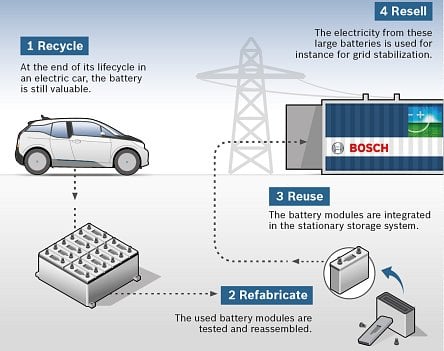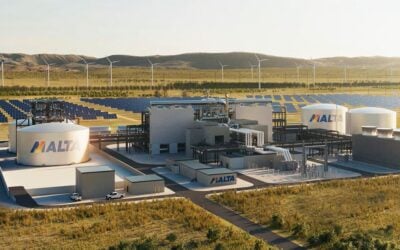
UK water utility Northumbrian Water is to pilot the use of battery storage units at a number of its sites under a new revenue-sharing partnership with developer Argonaut Power.
The terms of the agreement will see Argonaut oversee the installation of second-life Renault EV batteries, with all engineering work conducted by Connected Energy. Argonaut and Connected Energy announced their ongoing partnership in September, with Connected’s specialties including the production of E-STOR, storage system architecture based on the repurposed Renault batteries.
Enjoy 12 months of exclusive analysis
- Regular insight and analysis of the industry’s biggest developments
- In-depth interviews with the industry’s leading figures
- Annual digital subscription to the PV Tech Power journal
- Discounts on Solar Media’s portfolio of events, in-person and virtual
Argonaut Power is to act as the operator and manager of the completed projects, and will fully fund the installations under an installation and revenue sharing contract that is expected to be signed in the next fortnight.
The utility serves around 4.4 million people in the UK with water and wastewater treatment, supplying just over 1 billion litres of water each day.
Meanwhile, Ikigai Capital, a strategic advisor for the project, has been responsible for creating the pilot scheme’s financial structure.
While no specific details around the size, scale or number of installs has been released, a spokesperson for Argonaut parent Ingenious confirmed to our sister site Solar Power Portal that the parties are investigating the potential for storage at nine particular sites and the batteries are expected to be in the megawatt scale. All installs are expected to complete by autumn 2019.
Roberto Castiglioni, managing director at Argonaut, said: “We believe we have created something unique and innovative through a combination of technical and financial engineering. As far as we know, we’re the only fully-funded solution offering 30-year storage installations to C&I customers under a revenue sharing agreement, boosting site profitability.”
Water utilities are renowned for their energy-intensive sites, and Northumbrian Water owns facilities across the North East, Essex and Suffolk.
The battery storage units are to be used to both shift their peak demand and provide flexibility services to National Grid, with Argonaut Power receiving a share of the total income.
Anthony Browne, energy development manager at Northumbrian Water, said that the agreement was a “great opportunity” for the company to develop its understanding of battery storage.
“We expect that having batteries on site can also help us obtain more value from any renewable energy we generate on our sites. The bespoke solution was based on addressing the various elements of NWL’s strategy, such as local content, innovation, sustainability and consumers value, and we were certainly impressed by Argonaut’s ability to deliver results in line with our expectations,” added Browne.
At this year's Solar & Storage Live trade show in England, Argonaut Power's Roberto Castiglioni was among the panellists at a session discussing the availability of finance in the UK energy storage sector. Castiglioni said that renewables developers have become somewhat “lazy”, after seeing simple business cases offered for wind and solar projects, backed by subsidy programmes.
Now that those programmes do not exist and many of those developers are now looking to energy storage as a new opportunity, Castiglioni said, many will have to become more comfortable with taking on the 'merchant risk' associated with commercialising energy storage projects.






